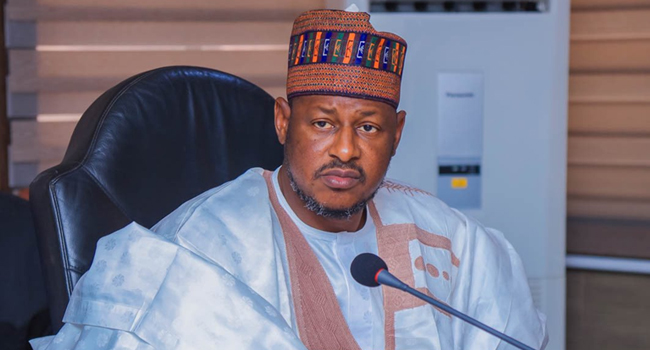The Katsina State Government on Tuesday, commenced a two-day capacity-building training session for 722 Co-opted local government agricultural staff, integrating them into the state’s mainstream agricultural extension services.
The objective is to provide farmers throughout the state with solutions to address persistent issues such as low productivity resulting from factors like improper seed selection, incorrect fertilizer application, diminishing soil fertility, pest and disease infestations, and strategies to enhance profitable returns through effective marketing.
The aim is to offer farmers throughout the state solutions to address their persistent challenge of low productivity, attributed to factors such as poor seed selection, incorrect fertilizer application, declining soil fertility, pest and disease infestations, along with marketing strategies to ensure profitable returns.
The event, titled “Building The Future of Extension Service,” was organized by the State Ministry of Agriculture and Livestock Development in partnership with the State Agricultural and Rural Development Authority (KTARDA).
Addressing attendees at the ceremony held at the Katsina Local Government Service Commission, State Governor Malam Dikko Radda emphasized the crucial role of effective extension services in agricultural development. He stressed that such services provide knowledge and information necessary for farmers to comprehend and make decisions regarding agricultural innovations.
The governor underscored the importance of extension services as a transformative element in agricultural development, emphasizing the need to educate farmers on adopting modern agricultural practices over traditional methods.
He noted that participants were selected from all 34 local government areas of the state, with at least two representatives chosen from each of the 361 political wards.
“In this process, we have decided to partner with reputable consultants from academia to provide us with much-needed support and training for our local government agric-based staff as an immediate and very important measure to bridge the deficit.
“When we came on board, we met only 72 extension agents in the state, almost all of them are at the age of retirement from the service. This is in addition to other policy proposals being required by my Government to promote agricultural activities in the state”, he explained.
He committed to acquiring motorcycles for the Ministry of Agriculture to distribute to all 722 trainers, enabling them to facilitate efficient service delivery. He also assured them of providing all necessary equipment and urged them to attentively absorb the training content to effectively reach farmers across the state.
In his earlier remarks, Professor Ahmed Bakori, the State Commissioner for Ministry of Agriculture and Livestock Development, underscored agriculture as one of the priority sectors for transformation under the current state administration.
He emphasized that Katsina State, being predominantly agrarian in population, possesses significant agricultural potential. Bakori emphasized that tapping into this potential will undoubtedly create an enabling environment for achieving food security and societal stability.
“It becomes imperative therefore to resuscitate the state agricultural extension service delivery. This training therefore seeks to boost the state’s agricultural productivity capacity and migrate from subsistence agriculture characterising the state to a more productive agricultural production for export.
“As a stepping move to consolidate our mission, we have decided to vigorously train and co-opted the local government agric-based staff to the mainstream state agricultural extension services.
“This means, giving our farmers across the state right at their doorstep access to solutions to their lingering problem of low productive output as linked to poor seed selection, wrong fertilizer application, declining soil fertility, pest and diseases attacks as well as marketing strategies for profitable returns”, Bakori added.



